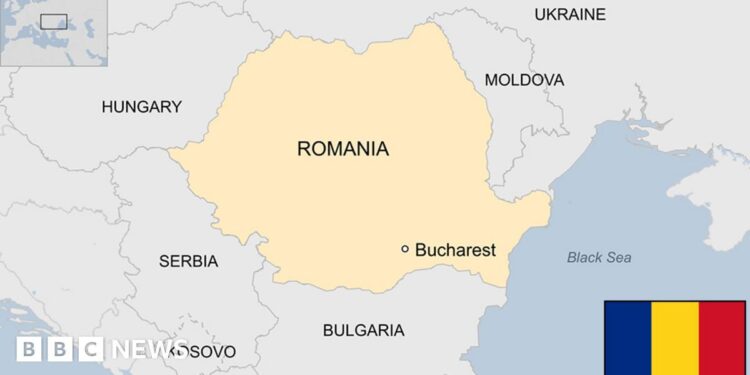Romania and German defense giant Rheinmetall have announced a strategic partnership to establish a state-of-the-art gunpowder manufacturing plant on Romanian soil. This collaboration marks a significant step in strengthening Europe’s defense industrial base amid rising geopolitical uncertainties. The new facility is expected to boost local employment, enhance Romania’s military supply chain capabilities, and reinforce Western security cooperation. Details of the agreement and its broader implications for European defense are now coming into focus.
Romania and German Rheinmetall Join Forces to Establish Strategic Gunpowder Manufacturing Facility
Romania and Rheinmetall, a leading German defense contractor, have announced a groundbreaking collaboration to develop a state-of-the-art gunpowder manufacturing facility. This joint venture is expected to bolster Europe’s self-reliance in defense production, ensuring a robust and secure supply chain for critical materials. The new plant, strategically located in Romania, will not only serve domestic military needs but will also cater to export demands across NATO and allied countries.
The partnership aims to leverage both parties’ expertise, combining Romania’s advantageous geographic position and skilled workforce with Rheinmetall’s cutting-edge technology and research capabilities. Key benefits of the project include:
- Increased production capacity to reduce dependence on third-party suppliers
- Strengthened regional security through improved armament manufacturing
- Creation of numerous jobs within the Romanian defense sector
- Enhanced innovation in sustainable and safe gunpowder technologies
| Project Aspect | Details |
|---|---|
| Location | Central Romania |
| Investment | Approx. ‚ā¨150 million |
| Expected Operational Date | Q3 2026 |
| Employment | 350 new skilled jobs |
| Production Focus | Precision gunpowder for defense |
Impact on European Defense Supply Chains and Regional Security Dynamics
The establishment of a new gunpowder manufacturing facility through the partnership between Romania and German defense giant Rheinmetall marks a pivotal shift in European defense supply chain resilience. This joint venture not only reduces dependency on external non-EU suppliers but also reinforces localized production capabilities within the continent. By integrating advanced German technological expertise with Romania’s strategic geographic position, the plant is expected to streamline material flows and significantly cut lead times for essential ammunition components across NATO allies.
Furthermore, the project has notable implications for regional security dynamics. Enhanced domestic production capacity strengthens Eastern Europe’s defense posture amid escalating geopolitical tensions. Key impacts include:
- Boosting military readiness of both Romania and neighboring countries through expedited supply chains.
- Encouraging deeper defense cooperation among EU member states and NATO partners centered around shared industrial projects.
- Stimulating local economies by creating skilled jobs and technology transfer opportunities.
The following table outlines the projected benefits to the European defense ecosystem generated by this collaboration:
| Aspect | Impact |
|---|---|
| Supply Chain Integration | Improved intra-EU ammunition logistics |
| Strategic Autonomy | Reduced reliance on non-European sources |
| Regional Stability | Reinforced deterrence in Eastern Europe |
| Economic Development | Creation of 500+ skilled manufacturing jobs |
Policy Recommendations for Enhancing Industrial Collaboration and Regulatory Oversight
Strengthening the partnership framework between Romania and Rheinmetall requires a multi-faceted approach that fosters transparency, innovation, and mutual economic benefit. It is essential to establish joint oversight committees that include stakeholders from both nations to monitor project milestones and ensure compliance with EU safety and environmental standards. Additionally, facilitating knowledge exchange programs and incentivizing research initiatives can help spur technological advancements within the local industry while aligning production processes with international best practices.
Policy measures should also aim to streamline regulatory procedures without compromising rigorous safety evaluations. Recommended steps include:
- Implementing unified certification standards for chemical manufacturing to expedite approvals.
- Enhancing environmental impact assessments with real-time digital monitoring tools.
- Encouraging public-private partnerships to mobilize capital and expertise.
- Establishing clear channels for community engagement to address local concerns transparently.
| Policy Area | Key Action | Expected Impact |
|---|---|---|
| Regulatory Harmonization | Unified EU-wide safety certifications | Faster project approvals |
| Technology Transfer | Joint R&D programs | Increased innovation |
| Environmental Oversight | Digital impact tracking | Reduced ecological footprint |
| Community Relations | Stakeholder forums | Improved public trust |
Closing Remarks
The agreement between Romania and German defense firm Rheinmetall to establish a gunpowder production facility marks a significant step in strengthening Europe’s strategic industrial capabilities. As geopolitical tensions and security demands evolve, such collaborations underscore the continent’s drive toward greater self-reliance in defense manufacturing. Moving forward, the plant is expected to enhance regional economic development while contributing to the broader objectives of European security and technological innovation. Stakeholders will be watching closely as the project unfolds, signaling a new chapter in defense cooperation between Romania and Germany.
















